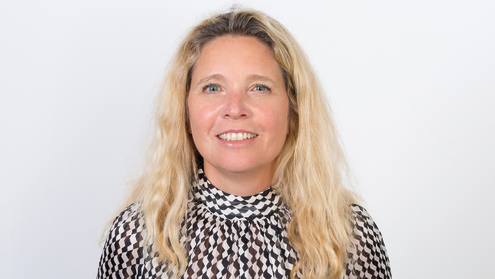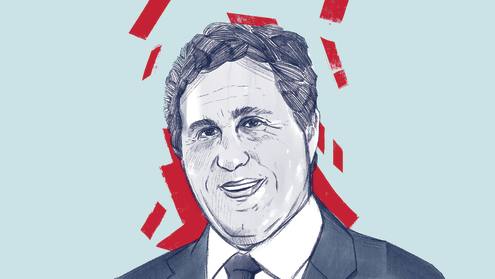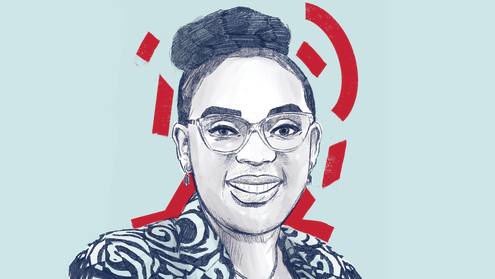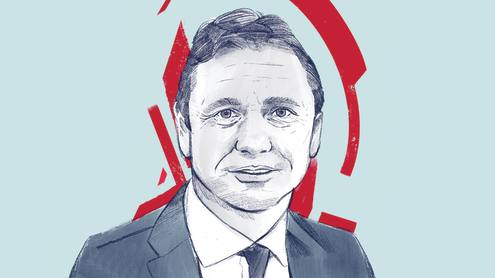'The East is rising.' It’s a claim we’ve all heard many times before – frequently coupled with the not altogether helpful observation that the West is in decline. Both statements may be true – Asian economies have grown on average by more than 6% in each of the past five years, while Europe has only achieved growth of about 1% – but it is naïve to suggest that the global marketplace operates according to some kind of 'see-saw economics' where if one side goes up the other automatically goes down.
Editor's choice
Unemployment is low in Kuala Lumpur, but not because it is high in Pittsburgh. Maybank is expanding, but not because of the collapse of Northern Rock. And Malaysia’s economy gets stronger by the day, but not because the eurozone is on its knees.
So we’re not sitting at opposite ends of the see-saw. Instead, as national economies become global and our interests become more intertwined, we find ourselves increasingly coming together in the middle. It may seem a bit crowded at times, and it may feel a little uncomfortable, but in today’s global world we cannot afford to stare straight past each other in stony isolation, watching each other’s ups and downs from afar.
An increase in living standards in the East not only doesn’t cause the West to fall or falter, it helps it rise yet higher – and growing prosperity in the East means the sharp eyes are now on Asian consumers as key drivers of global demand.
As income levels in Asia rise, people’s demand for goods will stretch increasingly beyond their country's borders to those produced anywhere in the world. If you walk into any mall in Kuala Lumpur you will see familiar brands such as Topshop, Burberry and Marks & Spencer alongside Malaysia’s own Maxis, Parkson and Metrojaya. And it is not only retail firms who have made the move – our financial sector is also host to firms such as HSBC, Barclays and Standard Chartered, who are working to develop a new generation of financial products for a new generation of Malaysians.
Prosperity for all
Increasing prosperity for all: that is the goal of our new global age. And it is the wealth creators – the bankers, businessmen and investors who come together at Davos – who will ensure that we achieve it. That’s why, in Malaysia, I am doing everything I can to enhance the delivery of government services, remove barriers to investment and catalyse bold, far-reaching change – and with an economy that has consistently grown even as Europe and the US have suffered recessions of historic proportions, it is clearly working.
At the heart of Malaysia’s success has been our international outlook – a whole new way of doing business. For nearly half a century the Cold War locked the world into a stagnant bipolarity: you were either with the US or with the USSR. Now, in the 21st century, our economies are so interdependent and production processes are so dispersed across borders that nations seeking refuge in this crude bilateralism will quickly find themselves behind the times.
Today, a car assembled in Dagenham is designed in Detroit, powered by an engine from Tokyo and fitted with tyres made of Malaysian rubber. National economic interest is increasingly about collective interest – which is why I have rejected the out-dated notion of 'taking sides' in international trade and relations, opting instead for a new multilateralism that works both for Malaysia and for our partners overseas.
Malaysia's global role
Half a century ago Malaysia was just a spoke in the international wheel, but today we are at its hub – we are connected to the US, but we are also connected to China, to Europe, to the Middle East and to Africa. It is what leading geo-strategist Parag Khanna calls “multi-alignment” – forging a criss-crossed network of alliances that reflects the geopolitical realities we face today.
Such networks are as important for trade as they are for diplomacy – and now is the time to venture forth into new markets, new industries and new locations. What you find there might surprise you.
Our physical infrastructure is expanding, our vibrant economy is growing, and the country as a whole has a progressive outlook. Modern Malaysia is a nation focused squarely on the future – and all of this progress has been built on the bedrock of political, social and economic moderation. As a multicultural, majority Muslim nation, fostering unity and harmony is at the core of everything we do – and we have zero tolerance for extremists.
Yet in Malaysia, we are moderate not just because it’s right. We are moderate because it works. Our economy has grown because we are moderate. The markets trust us because we are moderate. Investors deposit their money with us because we are moderate. And today, as peoples and governments everywhere struggle to navigate the global economic storm, it is precisely this moderation, allied with the hard work of Malaysians, foresight and sound government policies, that provides a clear path back to economic growth.
Moral code
There has been a lot of talk about morality in the financial markets of late, but for Muslims the idea that markets should be moral is one that has always been a given. A key element of Islamic finance is the prohibition of gharar – the acquisition of wealth based solely on risk or on playing the odds. Over the past few years, as the world has woken up to the potential consequences of risky transactions, Islamic finance has shown that it can be a serious economic force not by taking bigger risks but by taking far, far fewer. With more than 1.5 billion Muslims in the world, Islamic finance is on the brink of becoming a trillion-dollar industry.
Malaysia, with an Islamic capital market that is already worth almost $350bn, is the clear market leader. But that’s not the only industry in which we’re taking great strides. Already, for the first time ever, Malaysia is among the top 10 most competitive countries in the world. We are also the most competitive developing nation – but this hasn’t been achieved by dumbing down, cutting prices and trying to compete with China and India in a race to the bottom. We have done it by working with the private sector to find new niches, new sources of growth and new ways of delivering a competitive advantage.
Open, transparent, even-handed economic stewardship is what matters to business and what matters to me, which why I have put in place a comprehensive strategy to build the momentum for growth.
This 'New Economic Model' is delivering real action to raise the role of the private sector and make Malaysia an even more attractive proposition for global investors. It is cutting red tape and enhancing investment incentives. It is increasing competition and improving the business environment. And, crucially, it is rebalancing the roles of the public and private sectors – because in the modern world it is no longer good enough to simply say ”the government knows best”. The job of government must be to support industry, not stifle it. We must stand behind you, not stand in your way.
New world rules
So if you’re still thinking in terms of East versus West, I’m afraid you are stuck in the past. The old assumptions and expectations no longer apply. We live in an age where Europe looks to China for help in dealing with its economic problems, a world where the Olympics are coming to London but the World Cup is going to Qatar. It’s less a question of whether East or West will come out on top and more one of whether and for how long these labels will continue to apply.
Some 45 years ago I travelled to the UK to study industrial economics. Industry was the major growth area of the day and the UK – the home of Arkwright, Stephenson and Whittle – was the place to learn about it. Today, the 'new normal' puts Asia on an equal footing with Europe and the US, and I have high hopes that in a few years from now we will see students flocking from the West to study at Eastern universities.
We may not be quite there yet, but I am confident there are many things that you can learn from us already. In our newly interdependent economies, openings and opportunities abound, and I have no doubt that those investors who are truly global in their outlook will reap the biggest rewards – because as the saying goes, the sun may set in the West and rise in the East, but it is always daylight somewhere in the world.
Najib Razak is prime minister of Malaysia













